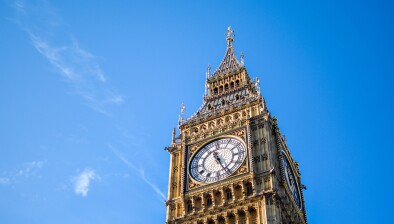Supreme Court: No right to new birth certificate for participants in Witness Security Programme

The Supreme Court has determined that participants to the State Witness Security Programme are not entitled to the issue of a new birth certificate which records their altered identity.
Delivering the lead judgment for the Supreme Court, Chief Justice Donal O’Donnell observed that “it cannot be said that an individual’s wish to have their birth certificate altered (or a new one issued) to align with their new name is sufficient to outweigh the obvious State interest in an authentic, accurate, and reliable register”.
Background
The first and second appellants, a married couple and the parents of the third to sixth appellants, were subjected to intimidation and harassment by a criminal gang in respect of which the first appellant had given information to An Garda Síochána.
The couple were eventually relocated to a different jurisdiction under the Witness Security Programme (WSP). The third, fourth and fifth appellants were born prior to the couple’s admission to the WSP, and so their names were changed along with those of their parents.
The couple adopted new names and were required to hand over identity documents including their birth and marriage certificates, PPS cards, driving licences, educational, employment and medical records.
The first and second appellants’ understanding was that they would be issued with documents on a like-for-like basis, but they were not issued with new birth and marriage certificates. Similarly, the third, fourth and fifth appellants were not issued with a new birth certificates. The sixth appellant, born after the relocation of the appellants, was registered in the host country under the new name of their parents and had a birth certificate in the family’s new name.
The couple complained that they experienced difficulties and were forced to lie when they sought to have some of their children admitted to school, which required the production of a birth certificate for the children. The issue of the missing documentation was overcome with the assistance of the host agency, but the appellants found the experience very distressing.
Before the High Court, the appellants claimed that they had an unenumerated right to an official identity record which would accord with their new identity and relied upon their right to equality before the law.
The appellants further claimed a declaration that the absence of a mechanism in the Civil Registration Act 2004 to provide the certificates sought failed to vindicate the constitutional rights of the appellants.
The High Court
While accepting that there was a constitutional right to have one’s identity correctly recorded, the High Court dismissed the appellants’ claim as it considered that their claim was to have an inaccurate record provided.
The High Court considered that even if there was such a right, or if a more general right to personhood or dignity was engaged, the infringement of that right was in pursuit of a legitimate aim and was not disproportionate. The trial judge also held that there was no breach of the equality guarantee.
The court’s analysis under the European Convention on Human Rights (ECHR) was broadly similar. The trial judge distinguished Goodwin v The United Kingdom (2002) 35 EHRR 18, in which it was held that transgender persons were entitled to have their reassigned gender officially recognised, finding that this right could not give rise to a right to have an inaccurate birth certificate issued.
The appellants were subsequently granted leave to appeal directly to the Supreme Court. The appellants emphasised that their claim related only to a right to a certificate in a new name for a person who has adopted that name for reasons of personal security, in consequence of a threat to life, and furthermore where that threat occurred as a result of assistance provided to the gardaí in a criminal investigation, where that threat is ongoing and necessitated admission to a WSP.
The Supreme Court
Chief Justice O’Donnell could not agree that the facts gave rise to any claim that the Supreme Court should find that the absence of a legislative exception from which the appellants could benefit renders the 2004 Act unconstitutional or violates their constitutional rights.
The Chief Justice explained that it was difficult to accept that the Constitution, which guarantees fundamental rights of broad application, should be interpreted to provide for such a narrow and fact-specific right.
Noting that the “structure of personal rights guaranteed by the Constitution necessarily implies a right to have one’s identity correctly recognised and recorded by the State”, the Chief Justice found it unnecessary to decide whether the Constitution protects a separate right to dignity, highlighting that it is well established that the right to identity derives from the guarantee of protection of the person.
The court considered that the right identified in case law is a right to have one’s correct identity recognised by the State, finding that the emphasis on the correct identity of the individual “is not an optional element which can be discarded in favour of some broader formulation of a right to have the State recognise an identity of one’s choice”.
The court continued: “[I]t can be said that the very correctness and authoritativeness of the register, the fact that it provides a value neutral datum, upon which reliance can be placed, is what makes registration, and consequent certification, valuable.”
The Chief Justice emphasised that what the appellants were seeking was “its anthesis: it is an asserted right to a deliberately false statement issued, moreover, as if it were an authentic and correct statement of fact with an implied representation that it can be relied on without more and be backed by the State”.
As to the appellants’ reliance on their right to life, the Supreme Court recognised that this threat did not emanate from the State and determined that it could not be said that the State must take further steps to protect the appellants by providing new certificates, particularly where this would run counter to the policy of the State in maintaining the integrity of the Register of Births, Marriages and Deaths.
Observing that the core of the appellants’ argument was not related to the remote risk of identification by hostile actors, but rather that the process of assuming a new identity and backstory is made more difficult if there are points of friction, the Chief Justice found that there was no evidence that the absence of new birth certificates gave rise to any additional risk to the life of the appellants.
The court distinguished the situations the subject of Goodwin and Foy v An tArd Chláraitheoir & Ors. (No. 2) [2007] IEHC 470, [2012] 2 IR 1, noting that in the case of the appellants, a new birth certificate would involve “wholesale changes”, not just to the names of the appellants, but presumably to that of their parents, and conceivably changes to the address, and date and place of birth.
The court further highlighted that in the case of gender recognition, the essential recording function of the register is maintained and that there is a link between the new gender recognition certificate and the original entry in the register, which would not be possible in the case of a new birth certificate issued for WSP participants as an “index of all such cases which would connect the old name with the new, for example, would seem to pose significant security risks”.
The Chief Justice also pointed out that in gender reassignment cases, the issuance of a new certificate does not falsify the record but merely records an “important truth” about the person and is a limited departure from the principle of maintaining the record of birth as of the date of registration.
Finding that the appellant’s interest in seeking a birth certificate “is driven by considerations of the efficacy of the WSP and to more fully facilitate the appellants’ adoption of a new name and identity”, the court reasoned that “that interest cannot be said to be on the same level as the interests such as those at play in Goodwin and Foy (No. 2)”.
The Supreme Court concluded that the arguments of practicality and policy “might lead the Oireachtas to decide to create a mechanism for the issuance of birth certificates to the participants in a WSP, but those considerations of policy and practicality are matters for the Oireachtas, and do not rise to the level at which it can be said that it is required either by the Constitution, or by the Convention”.
Conclusion
Accordingly, the Supreme Court dismissed the appeal.
Doe & Ors v. The Commissioner of An Garda Síochána & Ors [2025] IESC 44









